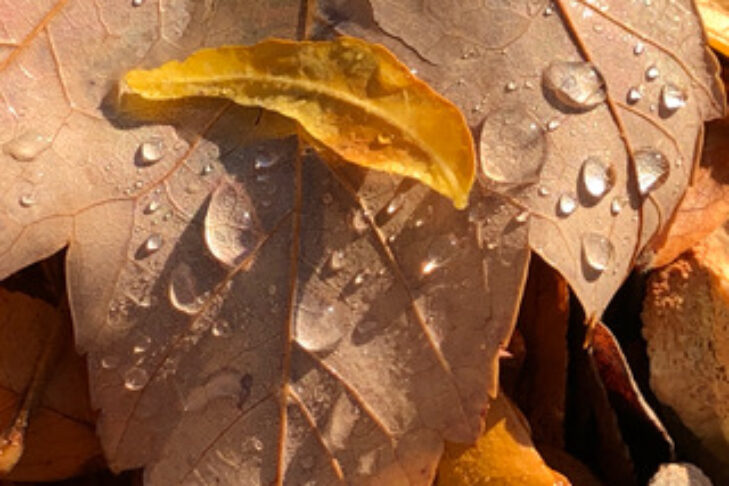When this summer started, we in the Northeast were facing a drought. The levels of water in area lakes seemed to be down by as much as 4 feet, and rivers that should have been tumbling with early spring melt weren’t rushing and gurgling so much as dribbling, the vegetation on their nearby banks a droopy, stunted mess. I was skeptical that the seedlings I had nurtured indoors all winter would survive if planted in my garden.
And then, as we moved into summer, the rains began to fall. Where we gardeners may have expected an occasional rainfall to water our gardens, rainfall which would need to be supplemented with regular watering by hose, instead it has seemed that almost every day we have received rain—and these were no gentle summer showers; instead, torrents of rain have fallen, soaking and re-soaking already sodden ground. Tomato plants accustomed to warm baking weather have yellowed and wilted, and the mosquitoes have been having a field day in the jungle that has appeared almost overnight in my backyard. And all of this is in the face of a hellish contrasting image of terrible drought and wildfires in the western part of the U.S.
My kishke/internal response has gone in several directions. First, we do have a right to wish for things to be good in life! I think of the Talmudic sage Honi the Circle-Maker who earned his sobriquet during a drought, when he drew a circle around himself in the dust and told God he would not leave the circle until it would rain. A light drizzle began to fall, at which point Honi shook his fist at the heavens and demanded that God send down more substantial rains. When torrential rains began to fall, he again took issue with God and demanded rains of goodwill and blessing—at which point proper rains began to fall.
It really is OK to be asking for just what it is that we need in life, and not be satisfied until we get it. And then, once our needs have been satisfied, the challenge is to shift our response away from a sense of scarcity and toward a sense of abundance and gratitude.
While it’s always a good thing to conserve our blessings, setting up a water barrel—physical or metaphoric—to save blessings like water against a future drought, it’s also important to express our gratitude and to savor the blessings we have received in life. The overgrown plants in my backyard may be feeling to me like just too much—but when I give myself a chance to focus on them, I can be aware of the miracles present in my yard on an everyday basis.
Expressing gratitude and really savoring our blessings are two gifts we can give ourselves, as if to underline the good fortune we are enjoying, deepening the experience of having received these gifts in life and as if watering our own souls.
We live in a society plagued by a scarcity mentality, where more is always considered a good thing. What would it be like to try on a mentality of abundance, of “enough-ness,” and savor what we actually do have, rather than always wishing for more?
And while we are thinking of “enough-ness,” perhaps we can harness the inclination in our hearts for “more, more, more” to feel energized in joining others and taking action to fight the environmental degradation that has tipped our natural world so out of balance. “Im lo achshav, aymatai?” we read in Pirke Avot: “If not now, when?”
So, how can we deal with having too much of a good thing? By setting up a rain barrel, conserving blessing to last beyond today. By savoring that blessing and finding a way to enjoy the jungle that ensues. By letting it spur us to take action around environmental degradation. May our efforts truly be blessed!
Rabbi Judy Kummer is a board-certified chaplain working in-person and remotely in her spiritual care private practice, Spiritual Support for Life’s Journey. Among the organizational work she has done, Rabbi Kummer has served as executive director of the Jewish Chaplaincy Council of Massachusetts for 18 years and the Massachusetts Board of Rabbis for two years. She has worked as a chaplain at Hebrew SeniorLife and has served congregations in Washington, D.C., Long Island and New Jersey. She is a composer, contemporary liturgist, hiker, artist and organic gardener. She lives and gardens outside of Boston.
This post has been contributed by a third party. The opinions, facts and any media content are presented solely by the author, and JewishBoston assumes no responsibility for them. Want to add your voice to the conversation? Publish your own post here. MORE


